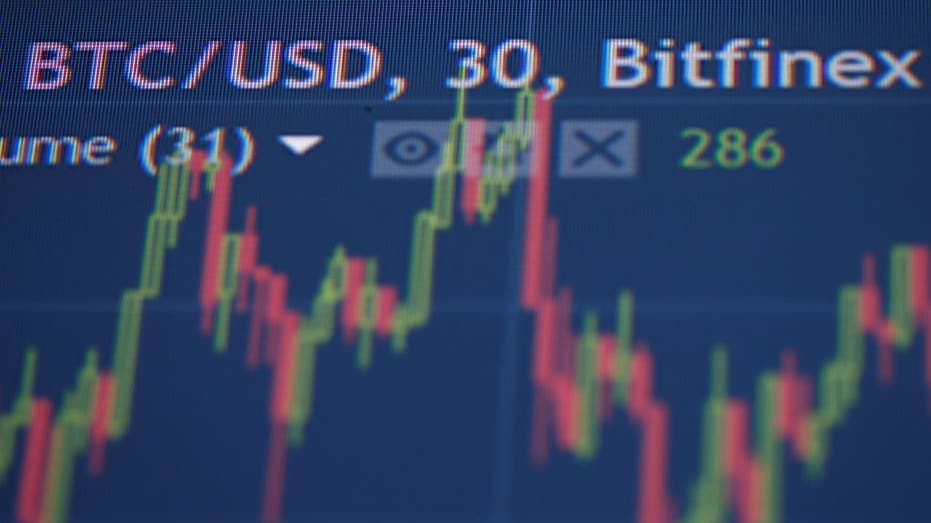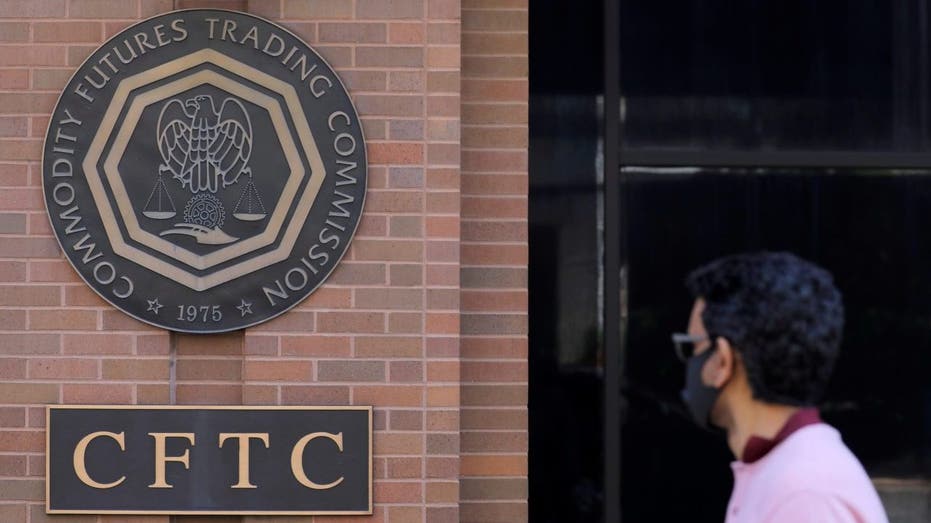Binance sees $2 Billion in Outflows as Troubles Compound
In a tumultuous few days, crypto giant Binance raises fees, suffers software issues and faces regulator lawsuit
Crypto industry poised for massive class action lawsuits against top exchanges: Gasparino
FOX Business senior correspondent Charlie Gasparino weighs in on crypto industry.
Traders are pulling billions of dollars from Binance as problems plaguing the world’s largest crypto exchange continue to mount.
The Commodity Futures Trading Commission on Monday sued Binance, alleging the exchange operated illegally in the U.S. and violated rules designed to prevent illicit financial activity. Last week, Binance announced it would charge fees on spot bitcoin trading again after cutting them to zero last summer. It also had to temporarily suspend spot trading for hours while it fixed a software error.
As of Monday evening, Binance had experienced net outflows of $2.1 billion on the Ethereum blockchain over seven days, according to crypto data provider Nansen. Overall, Binance holds $63.2 billion in the exchange’s publicly disclosed wallets, Nansen data shows.
"The pace of withdrawals is heightened compared to normal activity and did pick up after the CFTC announcement," Andrew Thurman, an analyst at Nansen said on Monday.
Still, Binance has seen bigger outflows in the past from regulatory moves. Mr. Thurman said outflows were more pronounced in February after New York regulators announced their ban on the new issuance of Binance-branded stablecoin BUSD, passing $1 billion every 24 hours at its peak. The token, the world’s third-largest stablecoin, has seen its market value more than halve this year.
THE NEW YORK COUPLE BEHIND EL SALVADOR'S BITCOIN EXPERIMENT
Binance’s decision to bring back trading fees likely contributed to a decline in its spot market share, analysts say.
The exchange’s spot market share dropped to a low of 30% on March 24 from 57% at the start of the month, according to CryptoCompare. The majority of trade volume on Binance was zero-fee, up until it added back the fees, according to Kaiko, a digital-assets data provider.
"Fees are extremely important," said John Quarnstrom, portfolio manager at crypto hedge fund Iceberg Capital. "Generally I’ll make a decision to trade on an exchange first and foremost on its custodial aspect; the second is the fees for sure."

Photo illustration of Bitfinex cryptocurrency exchange website. Picture taken September 27, 2017. REUTERS/Dado Ruvic/Illustration (Reuters Photos)
Binance maintained its 66% market share for the crypto derivatives market as of March 24, according to CryptoCompare.
A spokeswoman for Binance didn’t immediately respond to a request for comment.
In another sign of trouble for the crypto giant, a federal judge on Tuesday blocked Binance.US, the American affiliate of Binance, from buying Voyager Digital's customer accounts out of bankruptcy while federal authorities challenge the deal.
CONSUMER CONFIDENCE REBOUNDS AMID INFLATION, BANK CRISIS
Investors and analysts are monitoring for more regulatory actions against Binance in the coming months in the U.S. and potentially other jurisdictions. The firm’s chief strategy officer told The Wall Street Journal last month that Binance expects to pay monetary penalties to settle existing U.S. regulatory and law-enforcement investigations of its business.
"The arm of the U.S. agencies is very long," said Chris Perkins, president of crypto venture firm CoinFund and member of the CFTC’s Global Market’s Advisory Committee.

Signage is seen outside of the US Commodity Futures Trading Commission (CFTC) in Washington, D.C. REUTERS/Andrew Kelly (Reuters Photos)
Binance’s continuing efforts to evade U.S. rules and let Americans use its offshore crypto exchange was part of an "ongoing fraud," CFTC Chairman Rostin Behnam said Tuesday.
Speaking on CNBC, Mr. Behnam said Binance intentionally evaded the CFTC’s registration requirements by instructing clients on how to connect to the exchange without revealing their location in the U.S. Binance never registered with the CFTC, so it wasn’t legally authorized to offer crypto derivatives to American traders, the regulatory agency said.
'SHARK TANK'S' DAYMOND JOHN SHARES 'MOST EXCITING' INVESTMENT: 'NO BOOK LIKE THIS IN SCHOOLS'
"This was an ongoing fraud dating back to 2019, an ongoing violation of the Commodity Exchange Act," Mr. Behnam said on CNBC’s "Squawk Box" program. "This seemed to be a pretty clear case of evasion and something that we needed to step in aggressively with and do it as quickly as possible."
A CFTC spokesman said Mr. Behnam was "speaking generally to a more general audience about what the Binance case is, essentially fraudulent activity." But the agency didn’t charge Binance or its executives with fraud as defined by the law that the CFTC enforces.

Cryptocurrency was trading lower across the board early Monday morning. REUTERS/Dado Ruvic/Illustration (REUTERS/Dado Ruvic/Illustration / Reuters Photos)
Binance has said it has made efforts to operate legally in the U.S., including setting up an affiliate, Binance.US, that offers a slimmed-down menu of crypto products for American users.
Binance founder Changpeng Zhao said the CFTC complaint is "unexpected and disappointing," adding that Binance has been "working cooperatively with the CFTC for more than two years."
Some investors have pulled back from Binance, fearing the type of bank runs that felled crypto exchange FTX and other lending platforms last year.
François Cluzeau, head of trading at crypto market-making firm Flowdesk, said the firm has reduced its exposure to Binance since Friday.
READ MORE ABOUT CRYPTOCURRENCY HERE
"We always try to keep minimal funds on exchanges, but now we have reduced even more," Mr. Cluzeau said. "We had a terrible year with FTX and nobody wants to take that risk again."




















